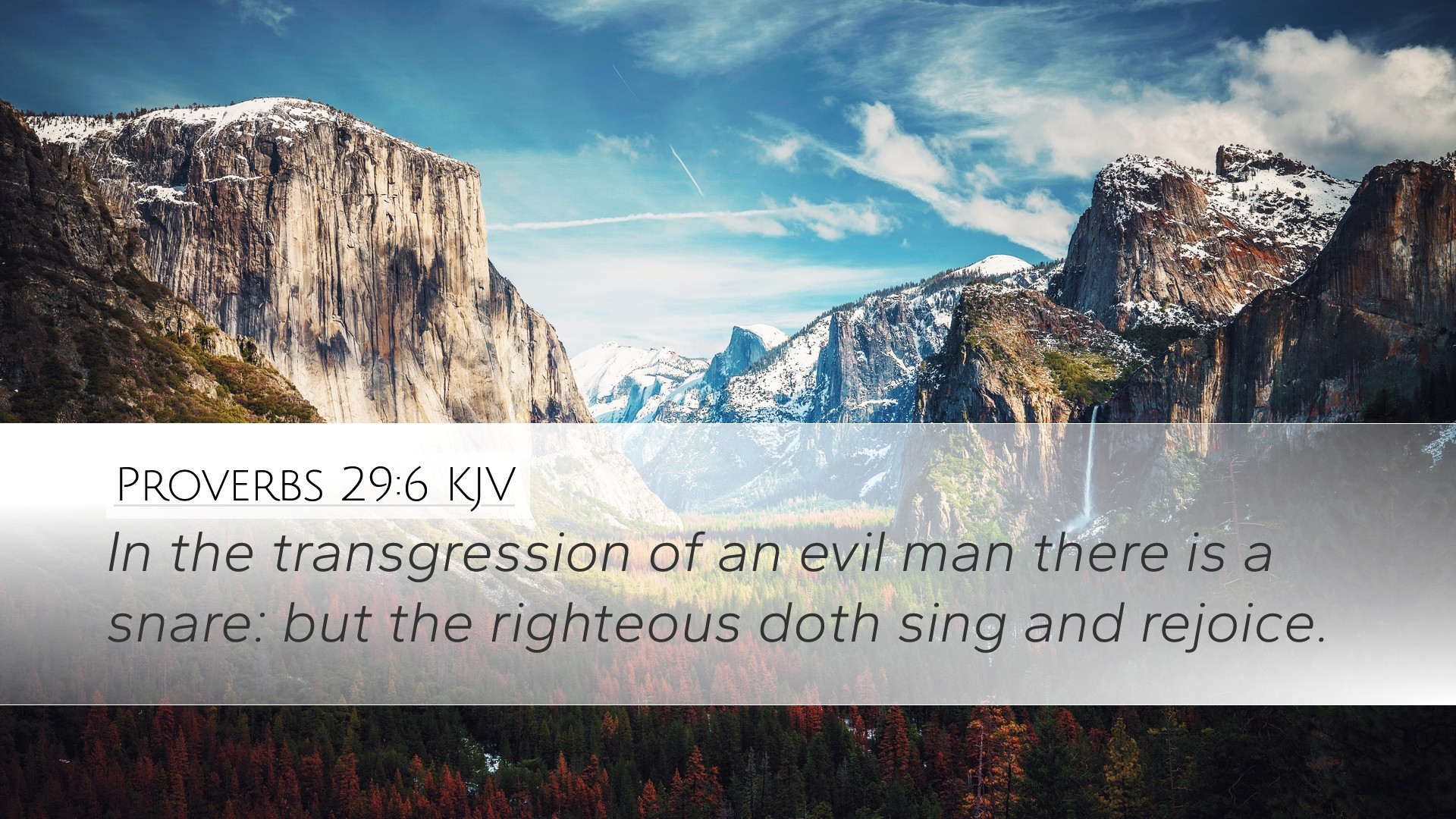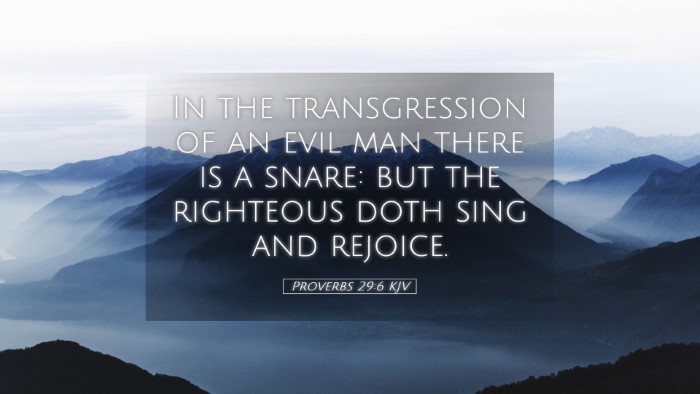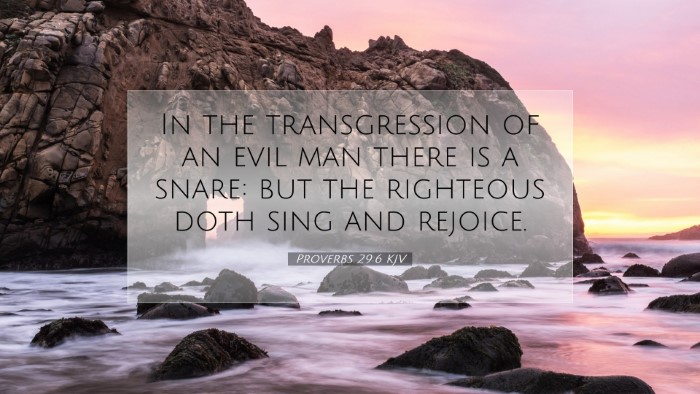Commentary on Proverbs 29:6
Verse in Context: Proverbs 29:6 states, "In the transgression of an evil man there is a snare: but the righteous doth sing and rejoice." This verse encapsulates a contrast between the fate of the wicked and that of the righteous.
General Overview
This verse emphasizes the consequences of wickedness versus righteousness. The imagery of a "snare" illustrates the entrapment that sin brings to those who engage in it, while the joy of the righteous serves as a stark reminder of the reward that comes from living correctly according to God's standards.
Insights from Commentators
Matthew Henry
Matthew Henry highlights the dangers inherent in a life of sin. He explains that the "transgression of an evil man" serves as a warning; it ensnares and entangles individuals, leading to destructive outcomes. Henry succinctly states that sin brings forth a sense of entrapment, where joy is obscured by the burden of guilt. He contrasts this with the righteous, who experience true joy and gladness—a result of living in accordance with God's will. Henry notes that their rejoicing comes from a clear conscience and the assurance of God's protection.
Albert Barnes
Albert Barnes offers a practical understanding of the verse by emphasizing the implications of moral choices. He posits that sin not only ensnares the one who commits it but also affects those around them, leading to broader societal ramifications. Barnes suggests that the "snare" represents the inevitable consequences of moral failings that entrap individuals, plunging them into despair and destruction. In contrast, the righteous man enjoys peace and security, characterized by a heartfelt expression of joy. Barnes encourages the reader to embrace righteousness as a path that leads to fulfillment and communal harmony.
Adam Clarke
Adam Clarke delves into the nature of the snare mentioned in the verse. He interprets it as a metaphor for the pitfalls that come with iniquity. Clarke argues that those who engage in sinful behavior are often blinded to the peril of their actions. Their transgressions not only captivate them but also create a cycle of misery. He asserts that the righteous, on the other hand, are like songs of joy; their lives are filled with the music of praise and contentment derived from living in alignment with divine principles. Clarke emphasizes that the joy of the righteous is both a present experience and a promise for the future, based upon their faithfulness to God.
Theological Implications
This verse serves as a profound reminder of the two paths one can take—the way of the wicked and the way of the righteous. The juxtaposition highlights the consequences that arise from ethical decisions and moral living.
- The Severity of Sin: The metaphor of a snare indicates the seriousness of falling into sin. It reflects how easily one can be caught up in wrongdoing, emphasizing the need for vigilance and a steadfast commitment to righteousness.
- The Path of Righteousness: The righteous are portrayed not just as avoiding sin, but positively engaging in worship and joy. Their lives resonate with the goodness of God, leading to communal and personal rejoicing.
- Moral Agency: The verse also underscores human responsibility in making moral choices. It calls attention to the fact that individuals must weigh their actions and their potential consequences carefully.
Applications for Life
Pastors, students, and theologians can derive several applications from this verse:
- Preaching on Sin: Use this verse as a basis to preach against the allure of sin, emphasizing its deceptive nature and destructive consequences in lives.
- Encouraging Righteous Living: Highlight the character of the righteous as a model for the congregation, encouraging them to cultivate joy that comes from obedience to God.
- Teaching on Joy: Discuss how true joy is a byproduct of righteousness and how it can be a testimony to others, contrasting it with the emptiness sin brings.
Conclusion
Proverbs 29:6 neatly encapsulates a principle foundational to wisdom literature: that moral choices lead to moral consequences. By reflecting on the insights of prominent biblical commentators, we can see the depth and richness of this verse as it unfolds truths about sin, righteousness, and the resulting emotional states. For pastors and scholars, the call is clear: to press on toward righteousness, embracing the joy that accompanies a life lived in alignment with God’s will.


